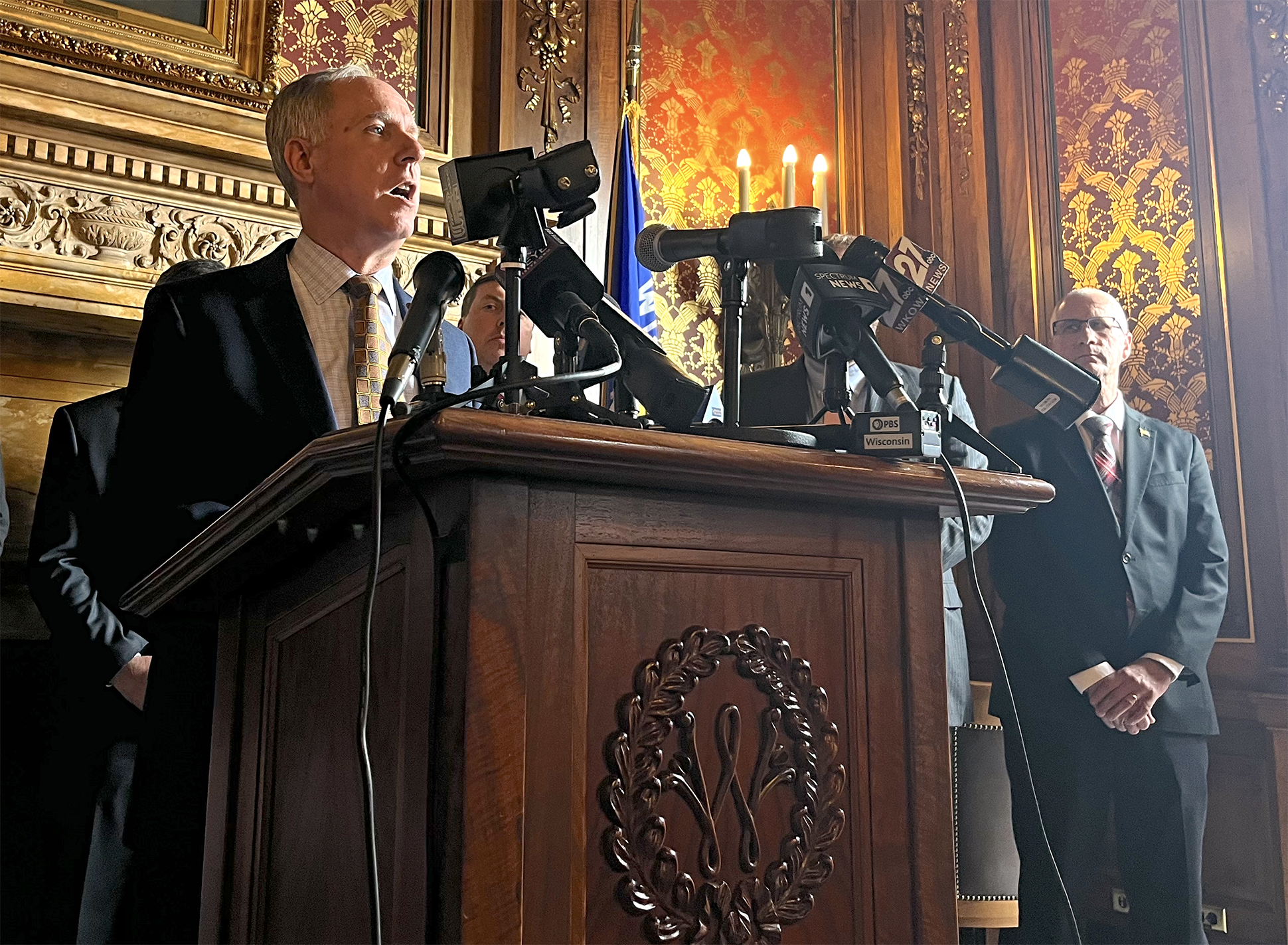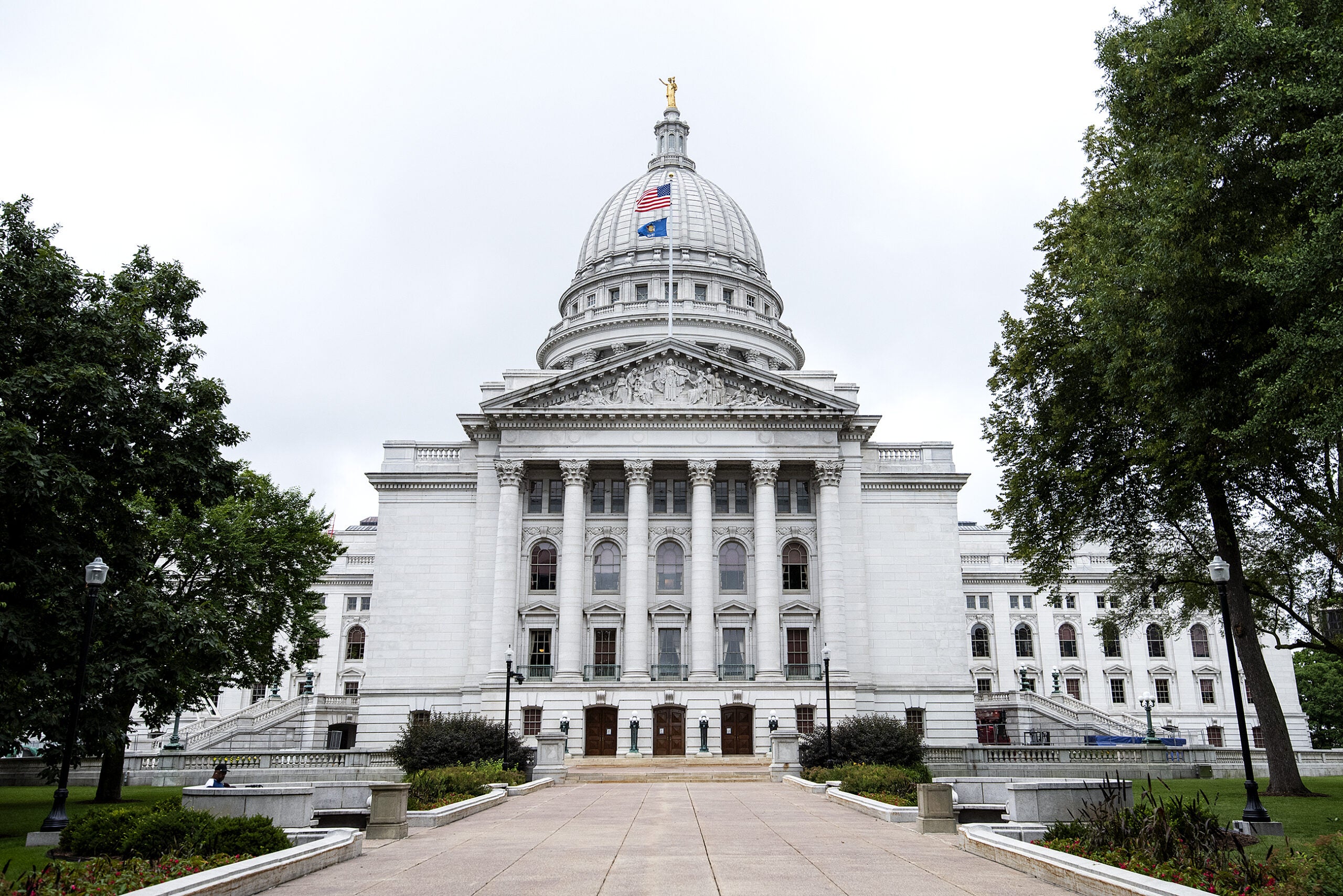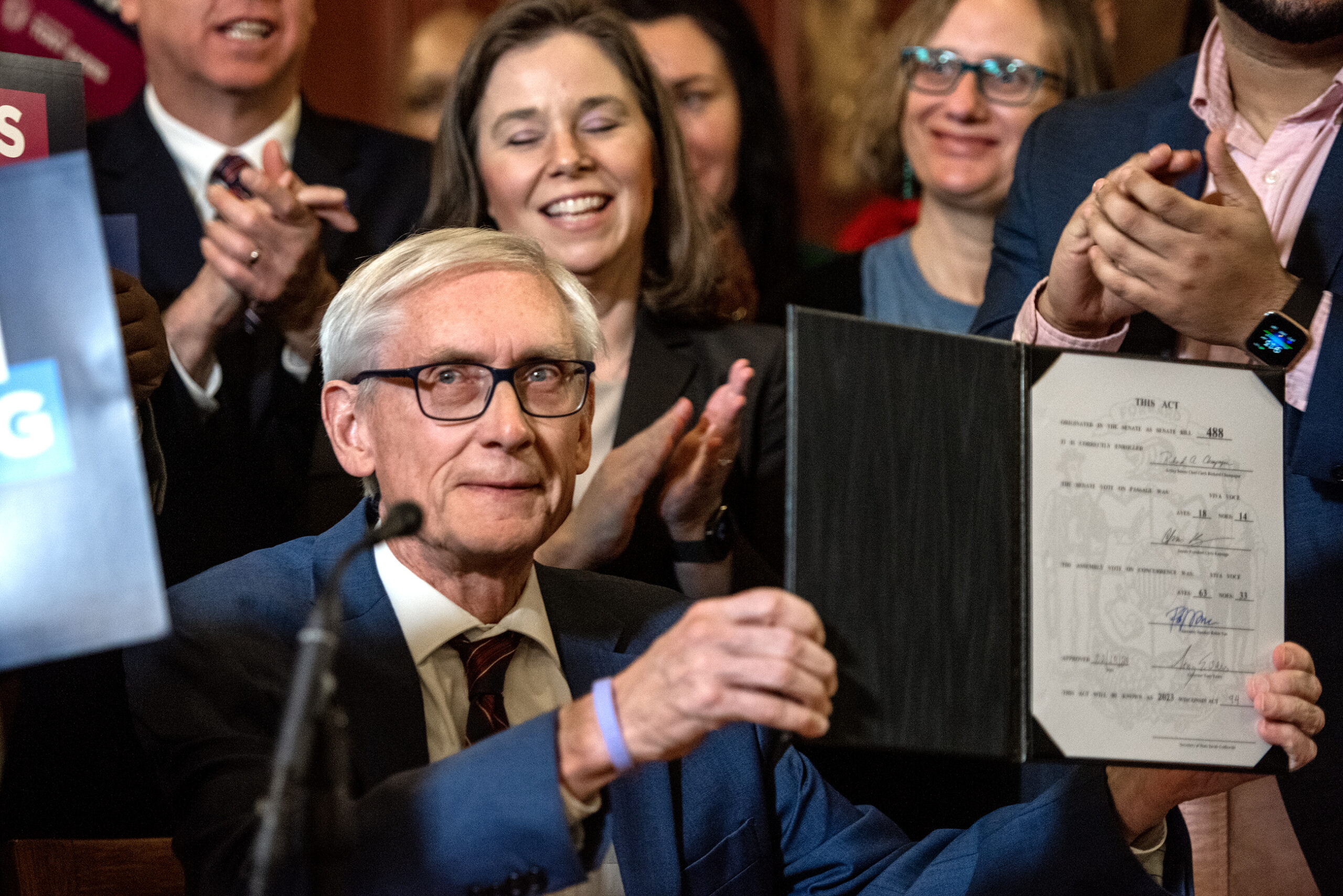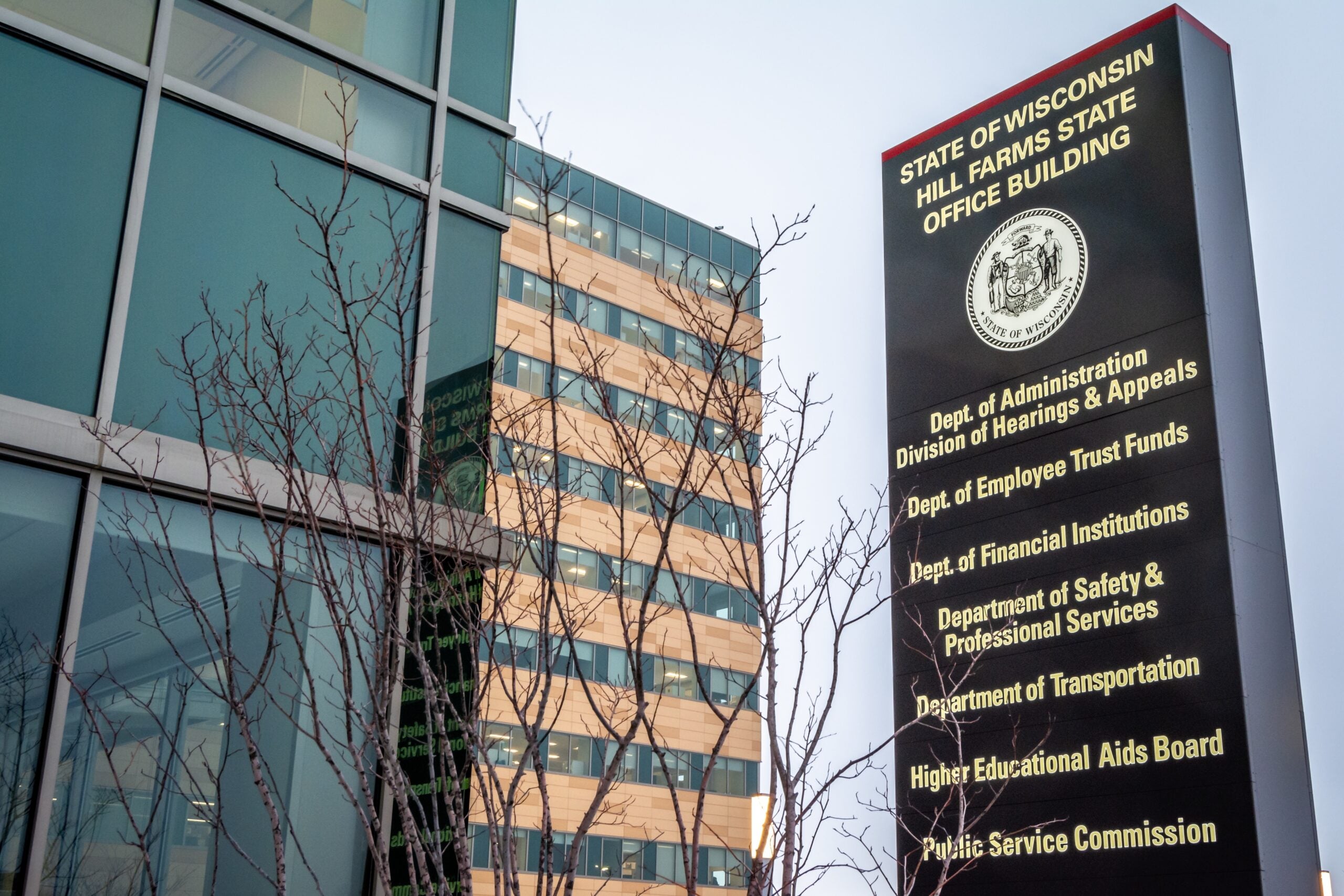A deal to overhaul local government funding cleared a major hurdle Wednesday, passing both houses of the Legislature to cement the biggest bipartisan compromise in Wisconsin state government in years.
The passage of the bill with a combination of Republican and Democratic votes sent the plan to Gov. Tony Evers’ desk. Evers, who helped negotiate the package, is likely to sign it.
The bipartisan support was more than just symbolic in the Legislature. Republicans, whose two-thirds supermajority in the Senate is large enough that they can normally pass their agenda with room to spare, needed help from Democrats this time around. A total of seven Republicans voted against the plan, which would have been enough to kill the bill without Democratic support.
News with a little more humanity
WPR’s “Wisconsin Today” newsletter keeps you connected to the state you love without feeling overwhelmed. No paywall. No agenda. No corporate filter.
In the end, it passed the Senate 21-12, with six Democrats joining 15 Republicans to support it, an exceedingly rare coalition in an era when the two parties generally don’t divide their ranks on an issue as big as this one.
The measure also passed the Assembly 68-26, with 13 Democrats joining 55 Republicans to vote yes in that chamber.
The agreement, which was reached between Evers, Assembly Speaker Robin Vos, R-Rochester, and Senate Majority Leader Devin LeMahieu, R-Oostburg, would increase state funding for local communities throughout Wisconsin by at least 20 percent and potentially save Milwaukee from a pending financial disaster. At the same time, it also includes provisions that have angered lawmakers on both sides of the aisle, for different reasons.

“It’s not perfect,” said Sen. Mary Felzkowski, R-Irma, one the lawmakers who helped negotiate the plan. “But let’s not let perfect get in the way of very, very good.”
At the center of the debate for Republicans were provisions that would let the city of Milwaukee and Milwaukee County raise local sales taxes with two-thirds votes by the city’s common council and the county board. If successful, the city could levy a 2 percent sales tax and the county could raise its sales tax by 0.4 percent, with revenue going toward paying down old pension debt and preserving police staffing.
Some GOP senators referred to the plan as a “bailout” for the city, and insisted that any tax increases be approved by voters in a referendum. That would have been required under the local government funding bill that passed the Assembly last month, but Republicans dropped the referendum requirement in their latest deal with Evers after the governor agreed to a substantial increase in state funding for the private school choice program.
Rep. Jessie Rodriguez, R-Oak Creek, who cosponsored the original version of the plan, said Wednesday that she would vote against it without the referendum requirement for Milwaukee.
“It conveys the message that legislators don’t value the public’s input,” Rodriguez said. “Or, even worse, that we don’t trust their judgment when it comes to critical decisions that impact their community’s financial future.”
For Democrats, the list of complaints about the deal was long, and included a variety of new restrictions it would put on local governments. For example, new funding in the bill could only be used for expenses like police, firefighters, emergency medical services and roads. Communities would also be required to maintain police staffing or risk seeing their state funding cut.
The bill would also include a number of restrictions specific to Milwaukee, taking away power from the city’s police and fire commissions and requiring the return of armed police in Milwaukee’s schools. The measure would ban the city from using its sales tax revenue to hire people in charge of promoting diversity, equity and inclusion. The city’s streetcar would also be off-limits for the funds.
Democrats were divided on whether those restrictions and others were too much. Sen. Chris Larson, D-Milwaukee, voted against the plan, but said he understood why some communities would support it.
“They have been starved for revenue so long that they are willing to eat anything that is dropped in front of them on the plate and told that it’s food,” Larson said.
But other Democrats argued the good outweighed the bad in the plan negotiated by Evers, especially the new revenue it promised for communities throughout their districts.
Had the bill not passed, or passed with a referendum requirement, Milwaukee Mayor Cavalier Johnson had warned it could push the city over a fiscal cliff, forcing it to fire hundreds of police and cut vital services.
Rep. Christine Sinicki, D-Milwaukee, called Wednesday’s vote the toughest she’d taken in her 25 years in the Assembly, but she ultimately supported the plan.
“I put a lot of thought into my vote,” Sinicki said. “And in all good conscience … I could not vote to put Milwaukee into bankruptcy, possibly opening the door to a state takeover. By passing this bill, Milwaukee will live to fight another day.”
In addition to the shared revenue plan, the Senate and Assembly passed a tandem bill that would dramatically increase state funding for private voucher schools. Evers agreed to support the plan in the late stages of negotiations.
It would increase payments for private school choice students by 13 percent in grades K-8 and by 33 percent — or nearly $3,000 — for high schoolers.
That bill, which was backed by a long list of a choice school advocates but opposed by teachers unions, was backed by all Republicans and just a handful of Democrats, passing the Senate by a vote of 24-9 and the Assembly by a vote of 62-31.
Other pieces of the deal between Evers and Republicans will be attached to the state budget, including a $1 billion increase in school funding between state and local taxes, an increase in state funds for mental health, a slight increase in the state’s share of special education funding and $50 million for a new literacy program. Those provisions passed the Legislature’s budget committee with only Republican support Tuesday night.
Editor’s note: WPR’s Anya van Wagtendonk contributed reporting.
Wisconsin Public Radio, © Copyright 2025, Board of Regents of the University of Wisconsin System and Wisconsin Educational Communications Board.







